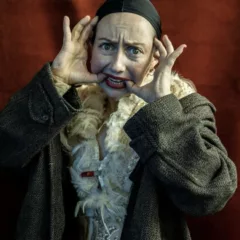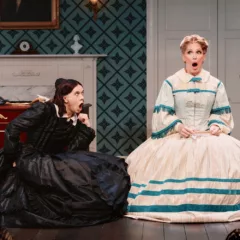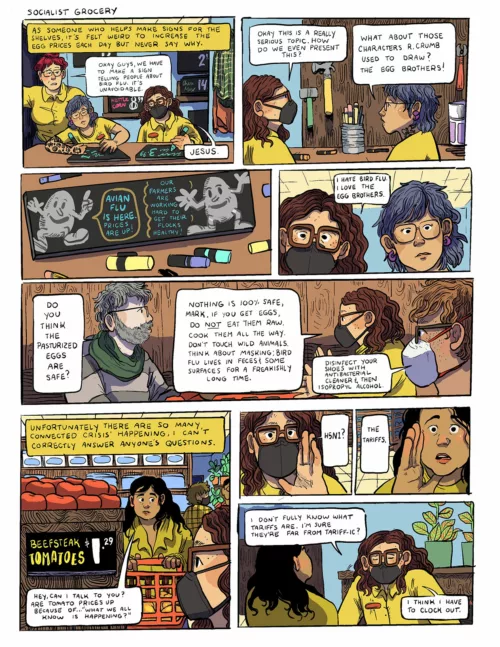Love is a mighty power, isn’t it? In Opera Philadelphia’s world premiere of Breaking The Waves, our protagonist Bess ponders that notion as she finds herself in a bind about what choice to make for the sake of love. Her paralyzed lover asks Bess to have sexual relations with other men, but is it more of a trap than a blessing? Will her own family hold her actions against her? This conflict creates an irresistible piece of opera theater from the moment that the character nervously arrives on stage.
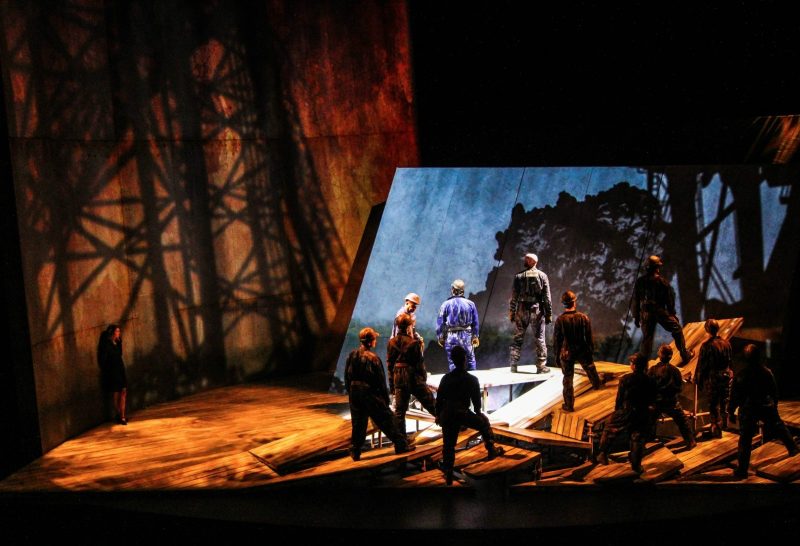
Adaptations
Set in the Scottish Highlands during the early 1970s, the story follows the relationship between Bess McNeill (played by soprano Kiera Duffy) and her husband Jan Nyman (played by baritone John Moore). Nyman, a tireless oil rig worker, becomes paralyzed on the job. Because he is likely to die, leaving Bess’s unable to endure without him (endure is a key word used possibly more than any other word throughout this work), he convinces her to seek out sexual relations with other men and report back to him. Bess’s sexual behavior alarms her devout Calvinist family, and plays into her own codependent need to be nurtured, the result of the early, traumatic loss of her brother. Through each sketchy encounter, she must decide if all of this is worth it for the true love of her life.
Opera Philadelphia enjoyed great success earlier this year with the East Coast premiere of Jennifer Higdon’s Cold Mountain, an adaption of the acclaimed book and film. Next up for adaptation was Breaking The Waves, a film directed by Lars Van Trier (winner of the Grand Prix at the 1996 Cannes Film Festival) that has come to be considered one of the most distinguished films of the 1990s. The film’s narrative inspired librettist Royce Vavrek (who had seen the film at the impressionable age of 14) to adapt the film into an opera. Vavrek worked together with composer Missy Mazzoli (Opera Philadelphia’s Composer in Residence from 2012-2015) to render the film into an opera. The story itself fits into the opera medium like a glove–just like classic characters ranging from Violetta Valéry to Blanche Dubois, Bess McNeill represents a suffering heroine who seems to be in deep trouble from the start.
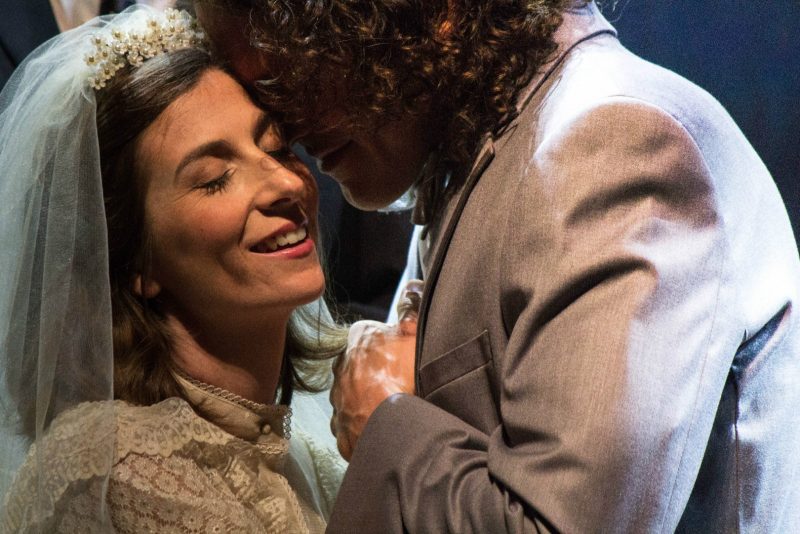
Musical translations
Mazzoli’s score has both an earthy and sacred quality, which is especially evident in its marriage of Scottish and traditional church musical influences heard in the harmonically dense orchestration. Mazzoli often highlighted Vavrek’s colloquial libretto by coloring in other instruments to make use of a line. One example was in the marriage scene: the scene-stealing Terry (Jan’s confidant and best man played by bass Zachary James) is amazed that there are no church bells in the church and states, “the fuck kind of church has no bells?” Mazzoli’s score cleverly immediately responds with the ding of a church bell.
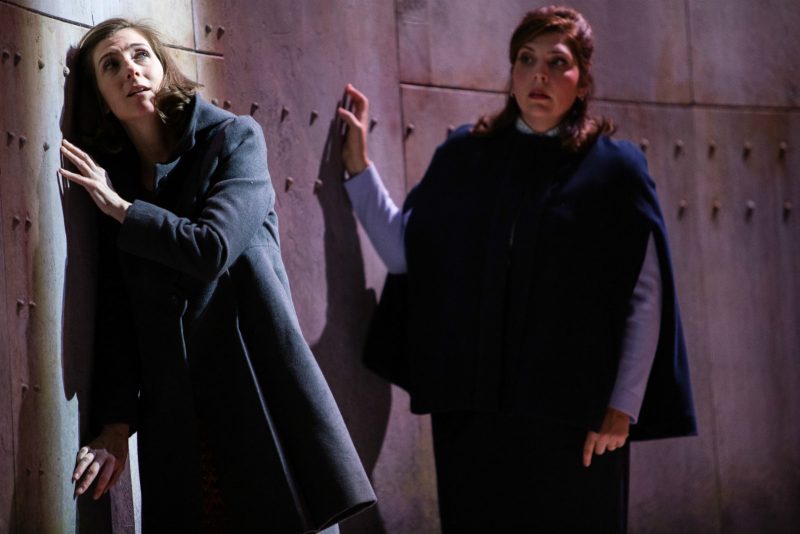
The production consisted of a cast of great singing actors but two performances in particular shined the brightest. Kiera Duffy (a high-ish soprano as she describes herself) gave a powerhouse performance as Bess, capturing her anxious desire to love and be loved. It was a brave portrayal that required her to be exposed (both vocally and physically) while embodying her character’s emotionally draining state of mind. The other wonderful performance was found in mezzo soprano Eve Gigliotti’s portrayal of Dodo McNeill, Bess’ sister-in-law. Her sound was full bodied and had a warm, resounding sense of line.
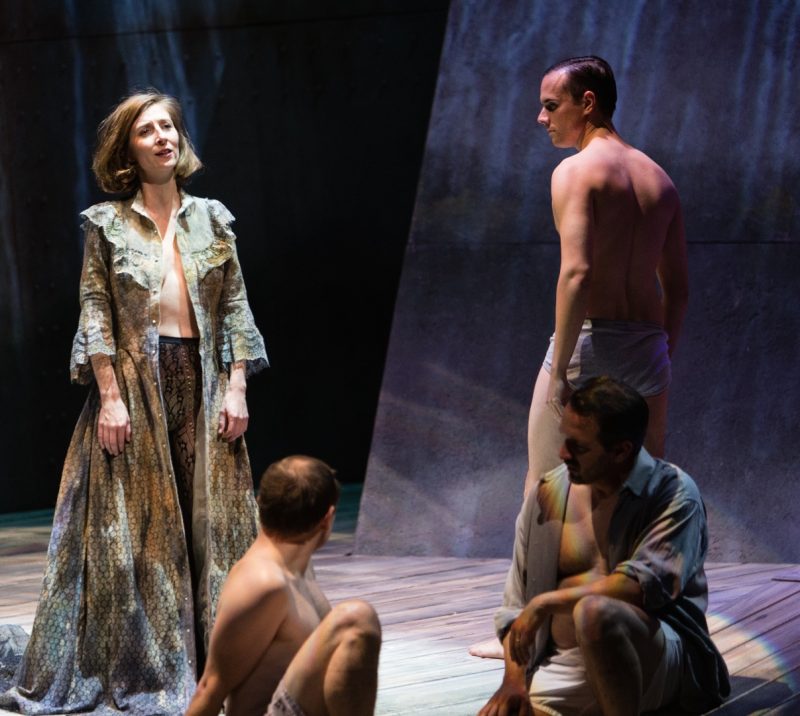
A new classic
Having seen all of the new operas presented by Opera Philadelphia in the past few years, Breaking The Waves is the best one out of the pack. It’s touching story, memorable score and libretto, and daring staging (the first opera I’ve ever seen with nude scenes!) make for a resounding contemporary American opera that will have a long life. This has been the goal all along for Opera Philadelphia’s American Repertoire Program, creating new classics to play alongside the past classics we know and love.
Breaking The Waves is part of a trifecta of sorts for the opera company. Puccini’s Turandot (playing at the Academy of Music) and the FringeArts co-presentation of Verdi’s Macbeth (played at the Prince Theater on September 24-25) are all being performed within the same time period. Opera Philadelphia is doing this to get the audience’s feet wet for next year’s O17, a 12-day festival featuring seven operatic productions (3 of which are world premieres). The festival will mark the first of its kind for an American opera company to begin its season with a festival. After the last performance of Breaking The Waves in Philadelphia on October 1, audiences will be on the edge of their seats waiting to see what this exciting company will dive into next.
Breaking the Waves is playing at the Perelman Theater through October 1.


